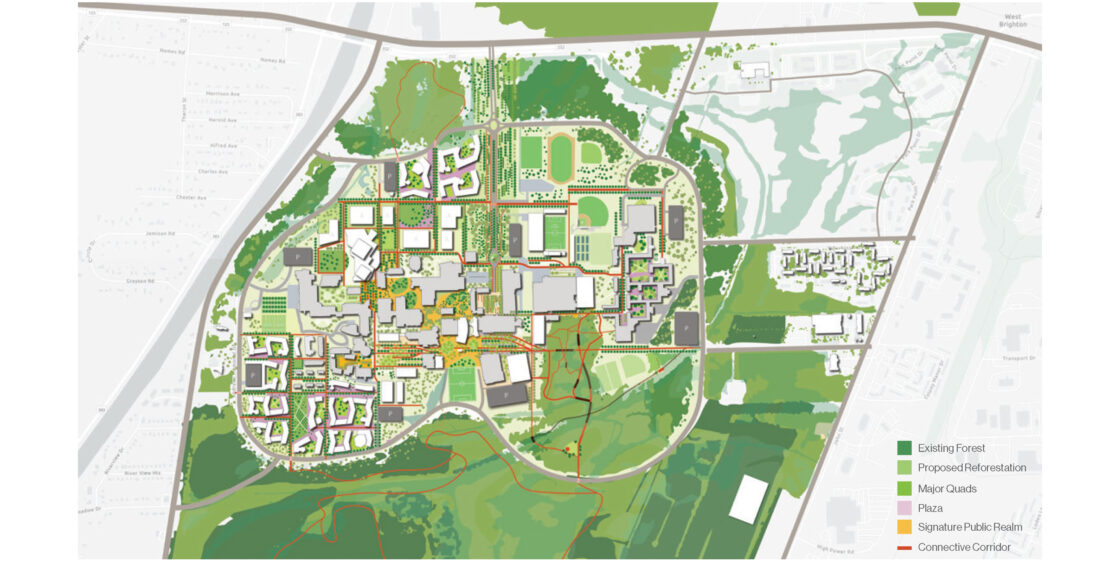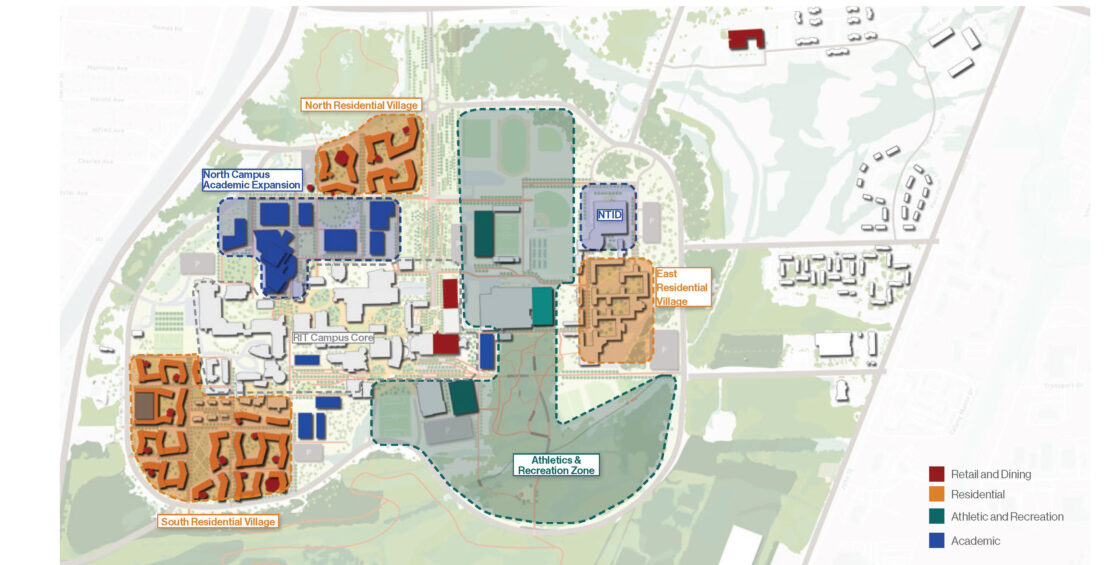Rochester Institute of Technology
Rochester, New York
Client: Rochester Institute of Technology, Rochester, New York
Market: Academic
Size: 2.3M gsf
Services: Campus Planning, Architecture
Project Team: Hargreaves Jones – Prime, Landscape Architect, Campus Planner Winstanley Architects & Planners – Architect, Campus Planner
Awards and Recognition:
2023 American School & University, Architectural Portfolio
Winstanley Architects & Planners partnered with internationally renowned landscape architecture firm Hargreaves Jones to develop a campus plan for the Rochester Institute of Technology, to guide growth and development through 2050. Taking a uniquely high-level approach to the campus planning process, the team participated closely with RIT’s Steering Committee to interview faculty, students, and other stakeholders to create a bold framework plan for the university strengthening the institution’s Strategic Plan.
With an emphasis on sustainability, efficiency, and wellness, WAP studied both existing academic and residential buildings as well as university land holdings to provide recommendations for phasing, renovation, and new construction. To guide these future interventions, WAP established architectural guidelines for academic and residential buildings, informed by a broad range of considerations, from architectural language and form to health and wellness.
As part of the academic facilities study, the team created a concept to establish individual spatial identities for each of RIT’s 10 primary colleges, in order to strengthen learning communities, increase higher space utilization, and improve wayfinding on campus through thoughtful architectural interventions.
As part of its residential facilities study, WAP analyzed existing housing offerings at RIT and provided detailed phasing recommendations to expand and diversify on-campus housing. A total of 8,000 new beds in two new ‘residential villages’ were proposed in the final plan. Lastly, WAP surveyed existing land holdings for the university and identified key recommendations to guide a future approach to RIT’s real estate portfolio.









